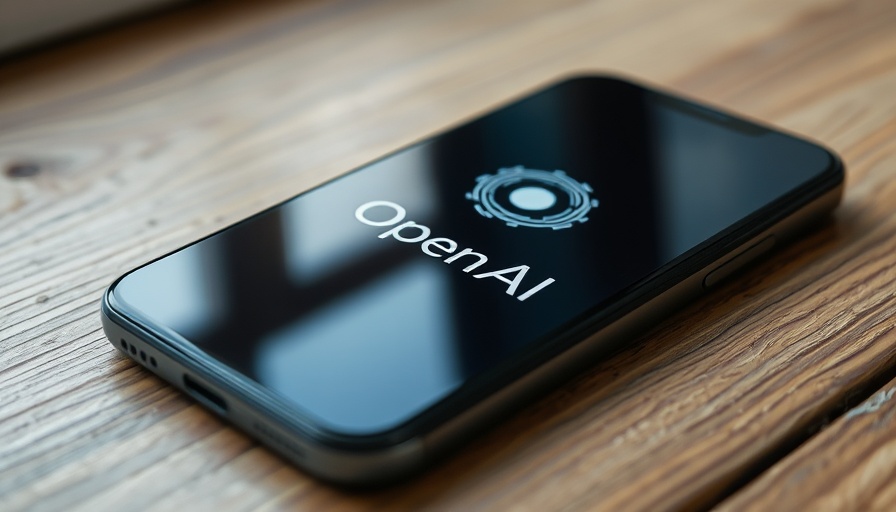
OpenAI's Expansion of Codex: A Game Changer for Developers
OpenAI has unveiled a significant update to its AI coding agent, Codex, marking a pivotal moment for developers seeking to enhance their programming efficiency. The latest features allow users to access Codex across diverse platforms, including GitHub and Integrated Development Environments (IDEs), aligning the tool more closely with developers’ existing workflows. Previously limited to the ChatGPT interface, Codex can now assist programmers directly in their coding environments, facilitating a seamless integration that promises to streamline development processes.
The Rise of Programming Assistants
This update comes at a time when AI-driven coding assistants are gaining traction in the software industry. Codex's new capabilities reflect a broader trend in which AI tools are increasingly prevalent in coding, allowing programmers to leverage technology for bug fixes, feature suggestions, and more. A recent survey highlights that AI now frequently outpaces human coders in code generation, although challenges regarding quality and reliability remain. The competition is fierce, with other players like GitHub Copilot and major tech firms such as Amazon Web Services and Google also expanding their AI initiatives.
New Features That Enhance Developer Experience
The updated Codex has introduced an Integrated Development Environment (IDE) extension, enhancing accessibility through popular platforms like Visual Studio Code and other forks. Developers can now launch and manage tasks within their local coding environments and further utilize Codex's functionalities with a clear sign-in process, eliminating the need for extra API keys.
Notably, Codex enables automatic code reviews on GitHub, streamlining the peer-review process. By simply tagging Codex in pull requests, users can request reviews and receive suggested fixes, thereby ensuring code quality while saving time.
What This Means for Future Development
As companies race to harness the capabilities of AI, OpenAI's proactive enhancements to Codex demonstrate its commitment to staying competitive in a rapidly evolving market. The integration of Codex into essential coding tools also opens avenues for increased productivity, allowing developers to manage complex tasks efficiently. The growing reliance on AI for coding tasks hints at a transformative future where human oversight and AI collaboration may redefine programming standards.
Concerns and Considerations
Despite the impressive advancements, the concerning aspects of code quality raised by surveys must not be overlooked. As self-generated AI code becomes more prevalent, it will be essential for developers to maintain vigilance over output, ensuring that efficiency does not come at the cost of reliability. Furthermore, the risks associated with dependency on AI tools call for balanced usage, with human oversight remaining critical, particularly in industries where software integrity is paramount.
Conclusion
OpenAI's update to Codex epitomizes the intersection of artificial intelligence and software development, providing substantial implications for how developers execute tasks. As we bear witness to the rapid evolution of AI tools, the spotlight on Codex also emphasizes the need for companies to adapt to technological advancements while upholding quality and trust in the software they produce. For tech-driven and marketing-centric professionals, grasping these changes is not just beneficial—it’s essential for staying ahead in an increasingly competitive landscape.
 Add Row
Add Row  Add
Add 




Write A Comment